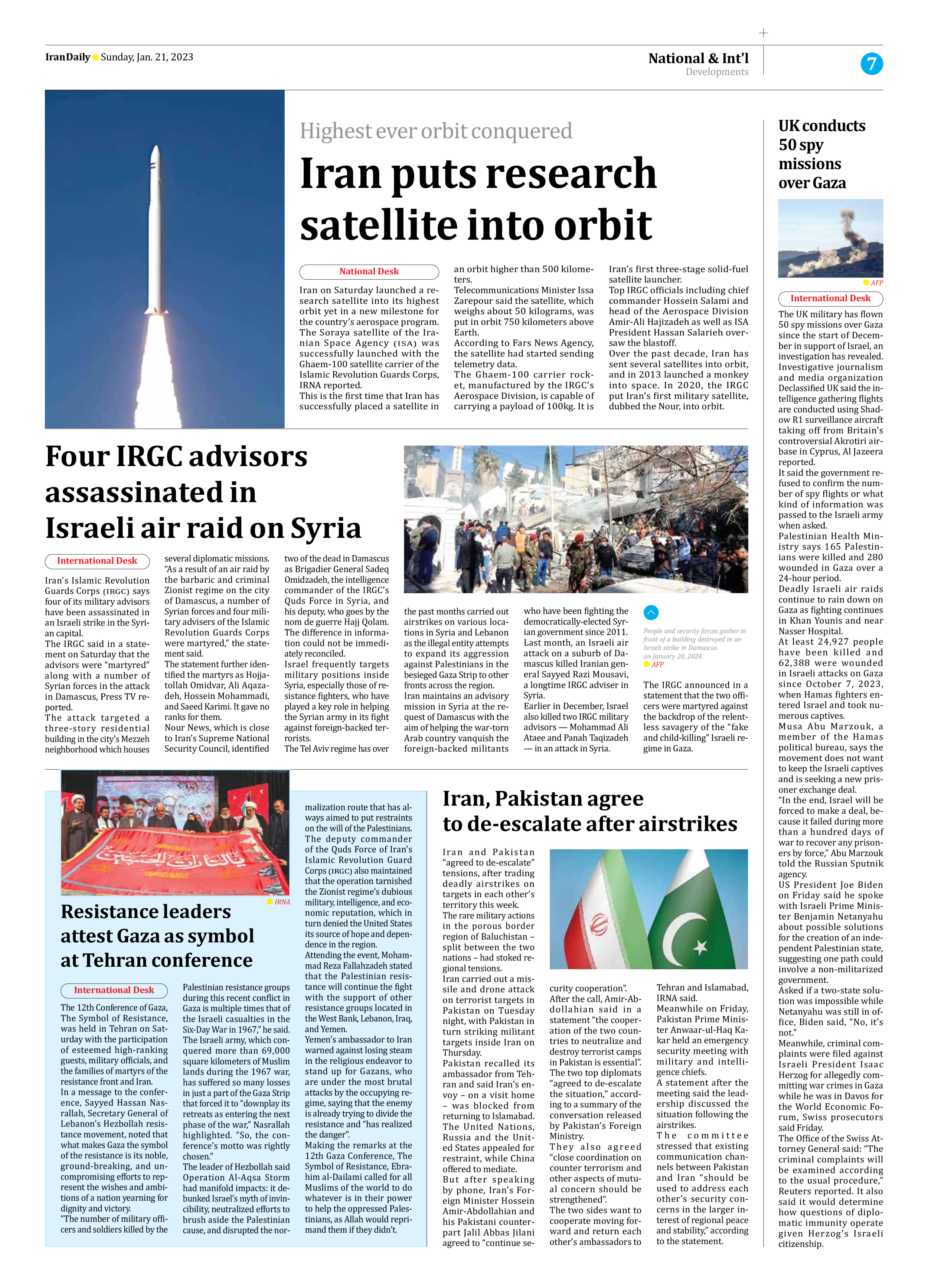
Iran, Pakistan agree to de-escalate after airstrikes
Iran and Pakistan “agreed to de-escalate” tensions, after trading deadly airstrikes on targets in each other’s territory this week.
The rare military actions in the porous border region of Baluchistan – split between the two nations – had stoked regional tensions.
Iran carried out a missile and drone attack on terrorist targets in Pakistan on Tuesday night, with Pakistan in turn striking militant targets inside Iran on Thursday.
Pakistan recalled its ambassador from Tehran and said Iran’s envoy – on a visit home – was blocked from returning to Islamabad.
The United Nations, Russia and the United States appealed for restraint, while China offered to mediate.
But after speaking by phone, Iran’s Foreign Minister Hossein Amir-Abdollahian and his Pakistani counterpart Jalil Abbas Jilani agreed to “continue security cooperation”.
After the call, Amir-Abdollahian said in a statement “the cooperation of the two countries to neutralize and destroy terrorist camps in Pakistan is essential”.
The two top diplomats “agreed to de-escalate the situation,” according to a summary of the conversation released by Pakistan’s Foreign Ministry.
They also agreed “close coordination on counter terrorism and other aspects of mutual concern should be strengthened”.
The two sides want to cooperate moving forward and return each other’s ambassadors to Tehran and Islamabad, IRNA said.
Meanwhile on Friday, Pakistan Prime Minister Anwaar-ul-Haq Kakar held an emergency security meeting with military and intelligence chiefs.
A statement after the meeting said the leadership discussed the situation following the airstrikes.
The committee stressed that existing communication channels between Pakistan and Iran “should be used to address each other’s security concerns in the larger interest of regional peace and stability,” according to the statement.







